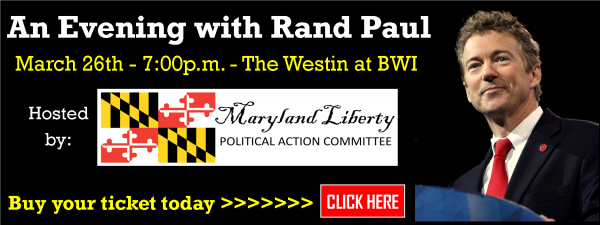The mailing had everything needed for the shock value: a worried-looking senior citizen juxtaposed over a stack of paper stamped “DENIED.” “Worried About Government Bureaucracy Restricting Your Medicare?” it asked. If the piece of paper could listen I would tell it that I’m not even counting on having Medicare when I get to that age, but I figured this may be a fun bit of research and exploration to do. “Okay, I’ll bite,” I thought.
The mailing came to both my wife Kim and I as two separate “families” and was paid for by the American Action Network (AAN). So my first question was obvious: who is the American Action Network? According to Wikipedia, the AAN is “a nonprofit issue advocacy group based in Washington, D.C. which promotes center-right public policy. It was established in 2010 by Fred Malek and Norm Coleman as a 501(c)(4) organization.” On their behalf, the AAN argues its “primary goal is to put our center-right ideas into action by engaging the hearts and minds of the American people and spurring them into active participation in our democracy.” So the heart must be the center and the mind must be right?
In essence, it’s a group similar to one I pointed out last week, Americans for Limited Government. AAN may have fancier digs and a larger mailing list and donor base, but they are just another of the thousands of issue advocacy groups orbiting around the capital region – one that has $1.7 million to spend on sending a piece that specifically asked me to, “Tell Congressman Andy Harris to Continue His Fight to Protect Your Medicare.” Since both Kim and I are registered as Republicans, I’m thinking the list was culled to specifically target GOP voters and it wouldn’t shock me if they also narrowed this mailing to only reach those over 50 (as Kim and I both are.) According to AAN, 61 districts in 27 states were targeted for the advocacy campaign, for a total cost (with print and digital ads) of $4.8 million.
To be specific, the mailing advocated the passage of two bills: H.R. 1190, which is better known as the Protect Seniors’ Access to Medicare Act of 2015, and H.R. 5122, which doesn’t have a fancy title but is intended “To prohibit further action on the proposed rule regarding testing of Medicare part B prescription drug models.” Harris (as well as every other Republican present, and 11 Democrats) voted for the former bill last year, but it’s been bottled up in the Senate.
H.R. 1190 has two purposes: one is the termination of the Independent Payment Advisory Board (or, in the words of Sarah Palin, the “death panels”) while the other cuts billions of dollars in spending on the Prevention and Public Health Fund over the next decade. But because Barack Obama isn’t going to agree with this anyway, it’s apparent that the bill will go nowhere in the Senate (they won’t even make it past the cloture vote.)
The second bill, H.R. 5122, would eliminate spending on a proposed rule, which is 33 pages to explain that the Department of Health and Human Services wants to try a new method of payment for certain drugs administered to Medicare patients as a trial program. The overall idea is to encourage the use of lower-priced drugs, since the authors of the rule contend the providers use more expensive medications to take advantage of a flat 6 percent reimbursement rate. As an experiment, the rate would go down to 2.5% plus a flat $16 additional reimbursement. After its introduction the bill has apparently sat in a desk drawer someplace because no vote has been taken on it.
Yet AAN objects to both bills, and “calls on seniors to advocate for two key legislative priorities: (1) H.R. 5122, to prevent the Obama Administration from changing the Medicare Part B payment policy for treatments, and (2) H.R. 1190, to repeal the Independent Payment Advisory Board (IPAB). Both bills will block bureaucrats from imposing harmful changes to Medicare that could threaten seniors’ access to care.”
So I investigated further, and found a missive Coleman wrote last month about this and other issues. Among the things Coleman said:
Despite assurances that ObamaCare would be the end all, be all, for health care reform in America, we now know that it is simply collapsing in on itself. Insurers are fleeing the system – premiums are increasing – and recent court rulings have undermined the credibility of the financial assumptions used by liberals to justify the creation of ObamaCare.
All this is true. Yet Coleman goes on:
In the end, America doesn’t need only to reform government.
We need to reform the notion that government is the solution to our problems or the key to our future prosperity.
Again, truer words have never been spoken. But the premise of the AAN mailing is that of protecting a government program by appealing to the beneficiaries. (A subsidiary site operated by AAN and promoted on the mailing makes this clear: DontCutOurMedicare.com.) If government isn’t the solution to our problem, one would think AAN would be looking to repeal Medicare entirely (over a relatively lengthy sunset period, of course) to truly reform the notion that Americans should depend on our government for health care or feel entitled to it. At the very most, the idea of Medicare should be no more than a state-level initiative – if the people of Maryland want a lavish senior care program, let them adopt it as their own. However, those in Delaware may feel differently.
So the definition of “center-right” seems to be the same sore subject that millions of Donald Trump voters used as their excuse to vote against the “establishment.” While they have selected a deeply flawed vessel to amplify their message, it seems those frustrated voters are looking more for the “right” than the “center,” since all the center seems to be is the maintenance of a failed status quo.
On the other hand, one can argue that their objection is not about government involvement, but instead only a complaint about the originator of the idea. They don’t seem to have the same issues with the Medicare Part D program enacted under Republican President George W. Bush – which is, in some respects, similar to the pilot program H.R. 5122 seeks to defund because Part D tends to reward the usage of less expensive medication. It’s still the federal government subsidizing health care, but it was done in the name of a centrist “compassionate conservatism” instead of the leftward “fundamental change to America.”
To me, it’s very ironic that a group which wants to back away from the idea that our government is a solution sends out a directive to appeal to our very conservative representative to maintain a costly government entitlement program. Even more so, those who complain “don’t touch our Medicare” would be the first to object to expanding eligibility to cover those over 50 years of age, in part because it’s Hillary Clinton’s idea. (Trump seems to favor the Medicare status quo with a few tweaks, which may explain why much of the AAN target audience is his support base.)
Perhaps the most interesting aspect of this is figuring out where they got $4.8 million for the campaign. We have a few clues, but the backers of this group aren’t being very public about it. So if they were looking for exposure, I suppose this piece is added value to them. But I must say: the “center” of their “center-right” really comes out with this one, particularly if you consider the center as our current situation – a President pulling to the left and Congress mildly countering to the right. Then again, to AAN we are only a “democracy” anyway, so at the moment the people want largesse from the public treasury, with AAN’s large donors perhaps trying to preserve their cut of the proceeds.
While those on the Left, such as writer Igor Volsky, celebrated Medicare as a success and believe the issue is settled, I happen to think those Volsky cites who argued against the concept when it was first proposed over 50 years ago were proven correct. Volsky also quotes an exchange between then-Congressman Mike Pence and journalist Andrea Mitchell:
Rep. Mike Pence (R-IN) explained his opposition to a new public health care option by arguing that Medicare spending has exceeded actuarial estimates from 1965. As Andrea Mitchell pointed out, somewhat jokingly, “I don’t know if you want to go back to Indiana and campaign against Medicare.”
Obviously those on the center-right don’t want to, so it’s going to take decades of re-education on the concepts of liberty and personal responsibility to counter the effects of the entitlement mentality society we live in today. Some may consider Medicare a success and wish it saved, but to achieve the rightsizing of government we need it’s clear Newt Gingrich was correct: Medicare does need to “wither on the vine.” Given the sheer number of insurance companies that now cater to the senior market, the problem Medicare was created to “solve” can easily be addressed by the private sector.



